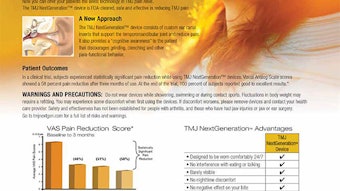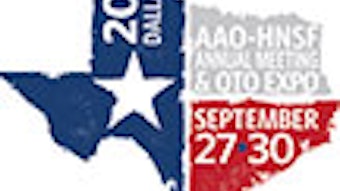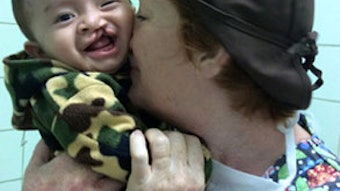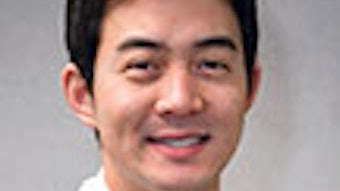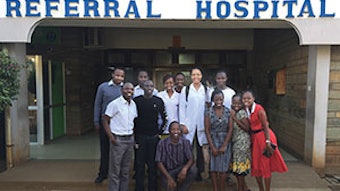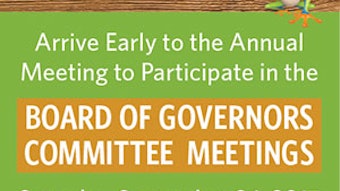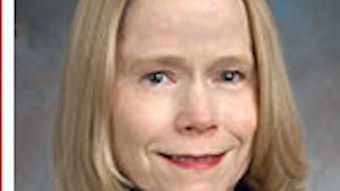Registry, coding, and compassion
We continue to make progress on our “Road to a Registry.” This month’s Bulletin features an enlightening article about clinical registries, including the formation and benefits of Qualified Clinical Data Registries (QCDRs) and examples of successful registry operations.
By James C. Denneny III, MD, AAO-HNS/F EVP/CEO
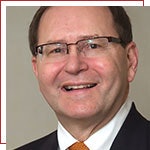
We have more news. In the complete review of our educational offerings, including the Annual Meeting, we reviewed format, pricing, and educational content. Our goal is to provide an excellent, broad-based content in a format conducive to flexible learning opportunities. Coding and practice management instruction is a consistently requested area for additional educational content. We felt a well-designed, comprehensive portfolio of offerings relating to ICD-10 and CPT coding and practice management resources, delivered in a variety of settings, would be of great benefit to our Members. The Academy Health Policy staff and Physician Payment Policy (3P) Workgroup undertook a comprehensive assessment of services and vendors. We are pleased to announce a collaborative partnership for an Academy-sponsored Coding and Practice Management Workshop at this year’s Annual Meeting.
We welcome our new partner, AAPC, and will team with them to present in-person meetings and state-of-the-art online educational opportunities. Specifically, we will highlight ICD-10 webinars and in-person events leading up to the October 1, 2015, transition from ICD-9. Practice management resources, including compliance planning strategies, will be integral to these workshops. We have participated in successful joint ventures with AAPC and Rhonda Buckholtz, CPC, CENTC, with coder certification. We anticipate a noticeable upgrade to our Annual Meeting with the addition of this workshop.
Applying skills where needed
In the wake of the earthquake in Nepal, I would like to acknowledge and thank all of our Members who participate in humanitarian efforts and outreach internationally and within the United States. Humanitarian work is not only disaster relief, but a wide range of services to improve medical care or education that benefit underserved populations. Opportunities for service abroad include surgical missions, visits to teach newer surgical technologies (e.g., endoscopic sinus surgery), or research efforts to understand the scope of ENT diseases in developing countries. Some Academy Members have found retirement as a time to shift their focus to volunteer work, starting foundations, relocating to become the sole otolaryngologist in a region, or helping to train new otolaryngologists abroad. In the United States, they may volunteer through a free clinic, head and neck cancer screenings at a health fair, visits to a Native American reservation, or offer financial or moral support to residents and other otolaryngologists who do humanitarian work. Residency is an optimal time to participate in humanitarian mission trips domestically and especially abroad. Such service can hopefully set a pattern for future service and can be a tremendous learning and teaching experience. Every year the AAO-HNSF disburses as many as 15 grants ($1,000 each) to help U.S. residents and fellows-in-training deliver care to those who need it most around the world. These grants are made possible through the generous support of our membership and the Academy’s commitment to the humanitarian spirit of our specialty.
Finally, I would like to commend the participants in this year’s CORE Grant Program for making 2015 the 30th consecutive year that such grants have been awarded. Participants from the American Academy of Facial Plastic and Reconstructive Surgery, AAO-HNSF, American Head & Neck Society, American Rhinologic Society, and American Society of Pediatric Otolaryngology reviewed 163 applications requesting $2.5 million in research funding. The 2015 CORE leadership (including the boards and councils of all participating societies) has approved 35 grants totaling $519,000. In an effort to keep costs down, the participating societies agreed to increase applications to be reviewed by each reviewer from six to nine. This resulted in 33 percent fewer reviewers participating in the 2015 CORE Study Section and an estimated $25,000 savings to participating societies. I would like to thank all of the societies that continue to participate in this worthwhile endeavor for their efforts in supporting research in otolaryngology and our staff, led by Stephanie L. Jones.
